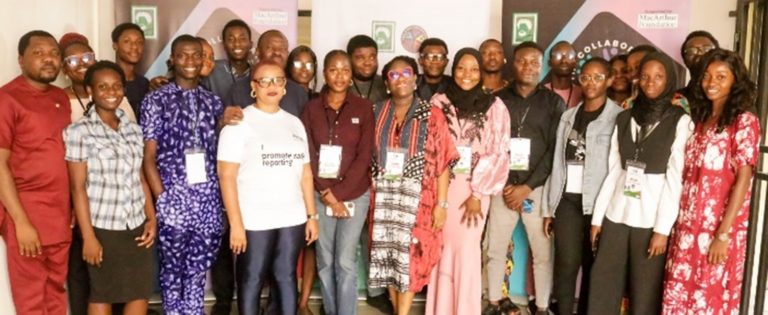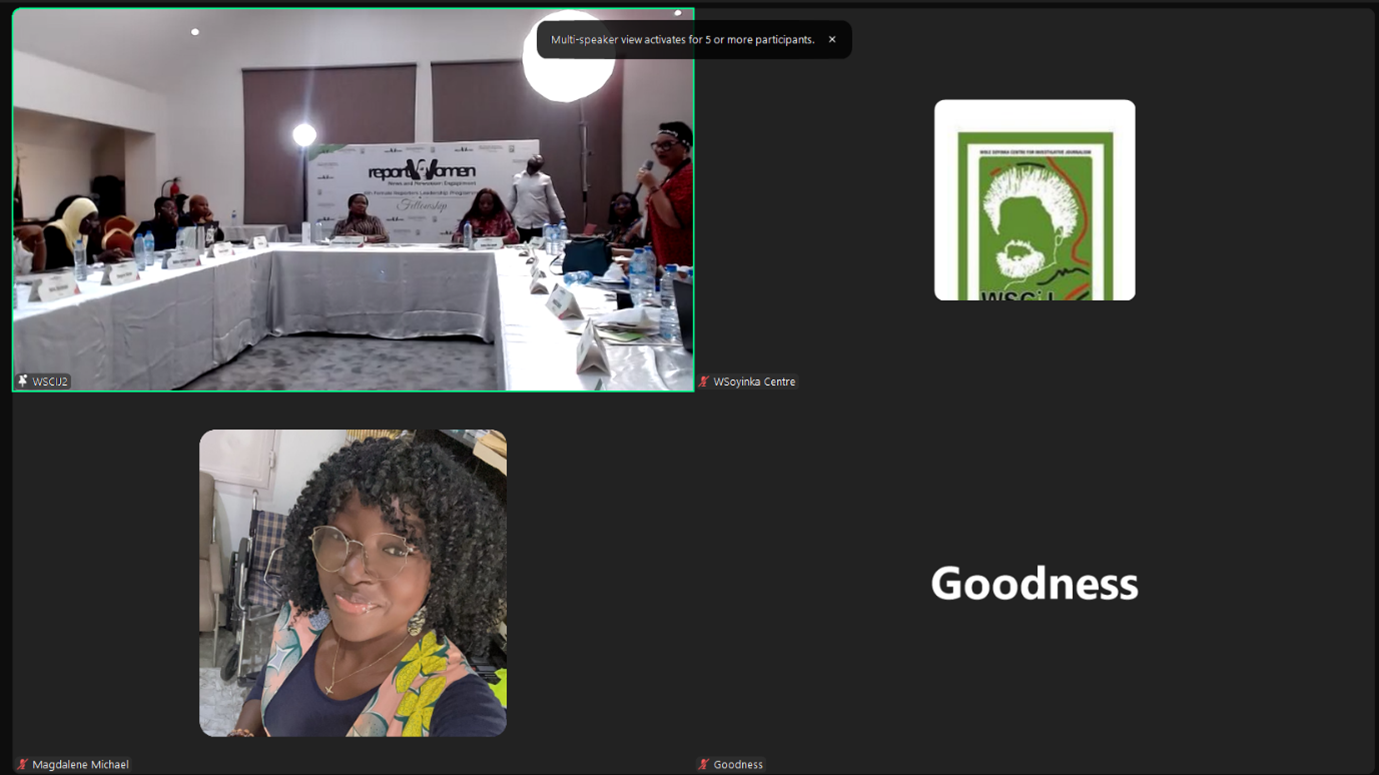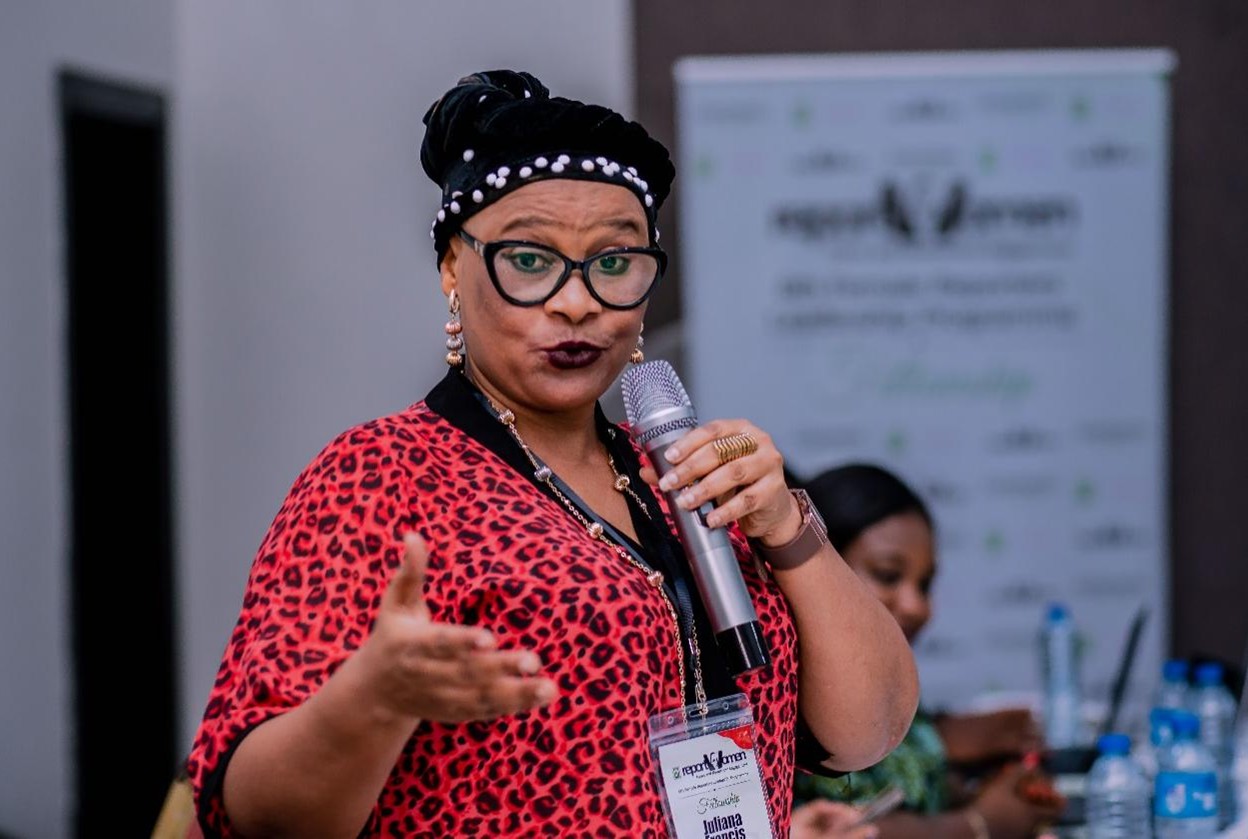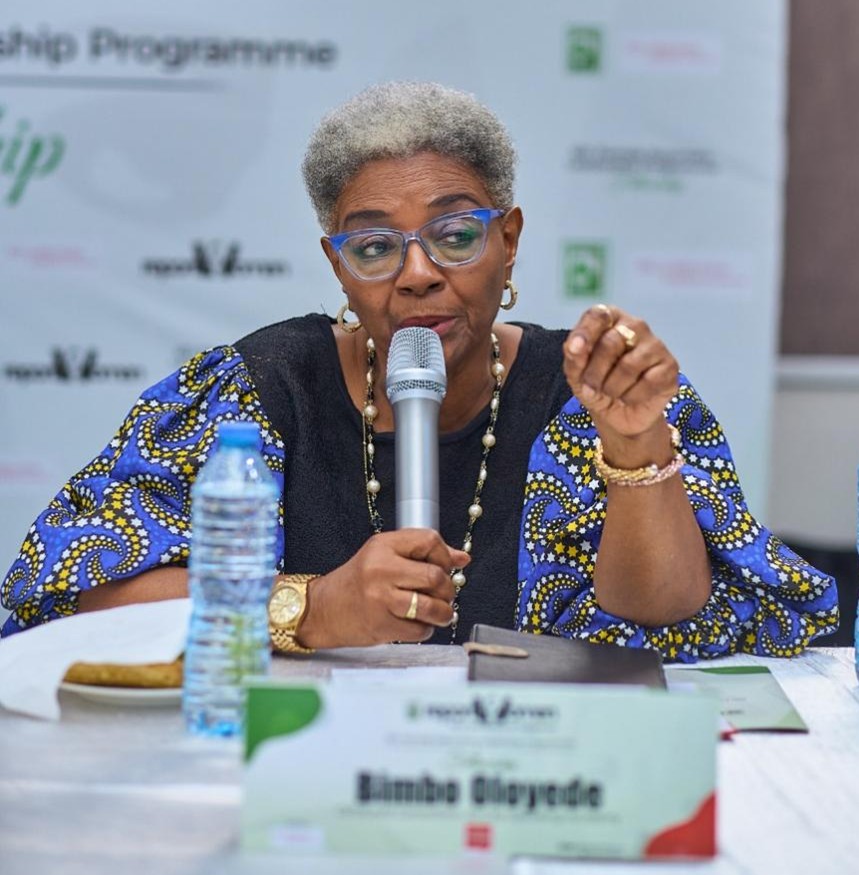The importance of finding good story ideas, story pitching, media ethics, storytelling and investigative reporters and the works they do at the subnational level to uncover issues through compelling stories were the focus of resource persons at the two-day training on local reporting for selected students of journalism from Lagos State University, University of Lagos, Yaba College of Technology and Nigerian Institute of Journalism. The training was organised by the Wole Soyinka Centre for Investigative Journalism (WSCIJ) under the Collaborative Media Engagement for Development Inclusivity and Accountability (CMEDIA) project courtesy of the MacArthur Foundation between Thursday 25 and Friday 26 January 2024 at the Yaba College of Technology.
The training is to enhance the reporting skills of the students of journalism to write stories on local issues and improve public awareness and the ecosystem for transparency, accountability, and good governance at the sub-national levels – states and local government. The training had Ibitayo Popoola, Associate Professor, University of Lagos; Tunde Akanni, Associate Professor, Lagos State University; Abigail Ogwezzy-Ndisika, Technical Advisor, CMEDIA; Motunrayo Alaka, Executive Director/CEO, WSCIJ and Juliana Francis, Deputy Editor, The Eagle Online as resource persons. Others were Funke Adesanya, Head of the Mass Communication Department, Yaba College of Technology; Olukunle Akinrinade, Head of the Investigation Desk, The Nation Newspaper and Titilope Fadare, Assistant Podcast Editor, SciDev.Net.
Francis highlighted practices such as humanising stories, using vivid descriptions, ensuring accuracy, crediting sources to avoid plagiarism, diligent proofreading, seeking feedback, and maintaining simplicity and clarity for investigative reporters. She emphasised the global reach of technology, enabling broader audience engagement through various online platforms. Stressing the significance of sources, she noted the importance of human beings, data, and documents in investigative storytelling while cautioning against source fabrication or unverified information from anonymous sources.
While discussing the essential requisites for an investigating reporter, Akinrinade said journalists must ask questions beyond official statements while telling these important stories that affect people at the grassroots. The Head of the Investigation Desk at the Nation Newspaper advised against premature conclusions, urging journalists to adhere to well-informed and verified facts in impactful storytelling.
During the session on ‘Local issues worth investigating,’ Ogwezzy-Ndisika provided helpful insights for budding investigative reporters. The focus was on sub-national issues, where she explored various sectors and highlighted critical areas for journalists to investigate. She emphasised the importance of digging deeper to find the human angle in local stories.
Meanwhile, Ademola Samson, Programme and Research Officer at WSCIJ emphasised the significance of effective story planning and pitching for journalists aiming to write compelling narratives. He explained the art and science of story pitching, enumerating key elements for story plans. The session was on audience mapping, sources, data gathering, developing story outlines and budgeting for an investigative story.
Fadare emphasised the dual role of social media—an information source and a platform for journalist-audience engagement. Addressing story amplification, she urged reporters to leverage influencers, translate content, collaborate with media platforms, and share with National Assembly committees. Encouraging mobile journalism and AI adoption, participants were motivated to enhance audience engagement and development.
Alaka advised journalists to write with readers in mind, ensuring clarity. Emphasising effective communication, she stressed that readers must comprehend conveyed messages. Alaka underscored the importance of strategic reporting approaches for impactful journalism, describing them as secret sauces to unlock the full power of journalism during the training session.
Addressing journalist safety, Akanni emphasised vigilance and professional appearance to avoid attacks. Stressing safety as paramount, he urged extensive reading, asserting its irreplaceable role in proficient writing during a safety panel for investigative journalists at the training session moderated by Adesanya.
Popoola and Ogwezzy led the intensive boot camps on generating ideas and crafting compelling story pitches for local investigative reporting. These sessions were a crucial part of the training, preparing student journalists to be mentored in writing and publishing impactful stories within their local communities.








